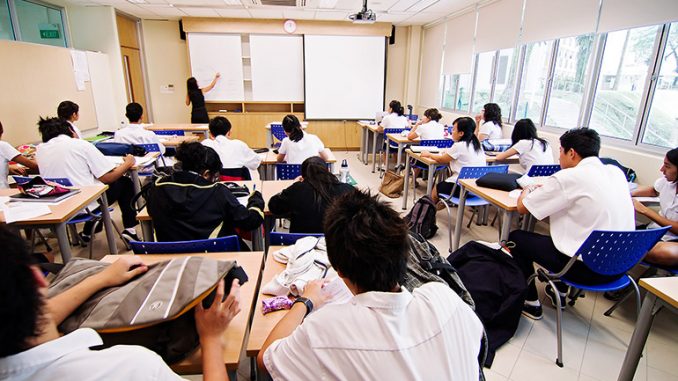
Children in North Yorkshire are more likely to be harmed by not returning to school this week than if they catch coronavirus, a senior health official has said.
Dr Lincoln Sargeant, the county’s director of public health, said the risk of pupils getting seriously ill from Covid-19 is dwarfed by what he described as the “certainty of long-term harm” if they do not attend classes.
“Very few, if any, children or teenagers will come to long-term harm from Covid-19 due solely to attending school,” he said.
“There is an overwhelming need for children and young people to return to school now, not just so they can catch up with their missed studies and go on and fulfil their academic potential in the future, but also for their mental health, their well-being and their wider development.”
Thousands of pupils have begun returning from today, Wednesday, after North Yorkshire County Council said all students, in all year groups, are expected back behind their desks.
Teachers have more than three months of schooling to catch up on, and classrooms will look different with one-way systems, screens keeping students apart and staggered start times.
Some vulnerable pupils and key worker children did attend classes before the summer holidays. During this period, Dr Sargeant said schools did not see any virus outbreaks despite identifying individual cases, almost all of which were parents and staff.
He said there is”clear evidence from many studies” that the vast majority of children who catch Covid-19 have mild symptoms or no symptoms at all.
Dr Sargeant said that early evidence suggests the reopening of schools elsewhere has not usually been followed by a surge in cases, although “there has not been sufficient time to say this with confidence”.
He added any outbreaks in schools would most likely come as a result of a local or national surge in transmission in the community.
“We are mindful that opening schools may link households indirectly or directly to transmission in schools”, he said.
“For example, allowing parents to go back to work, or meeting at the school gates, on public transport or in shared private vehicles, via after school social or sport activities or wrap-around care may be as important as what happens within the school.”


Be the first to comment